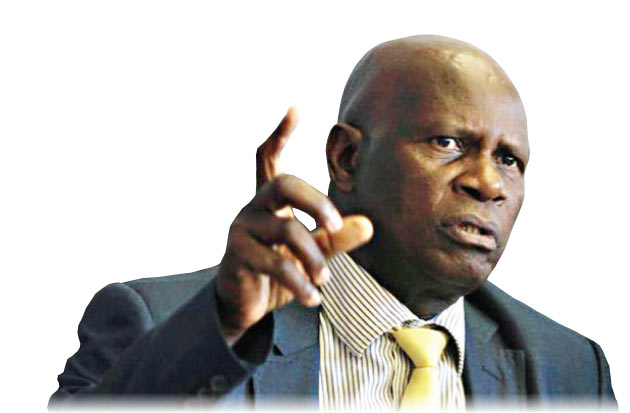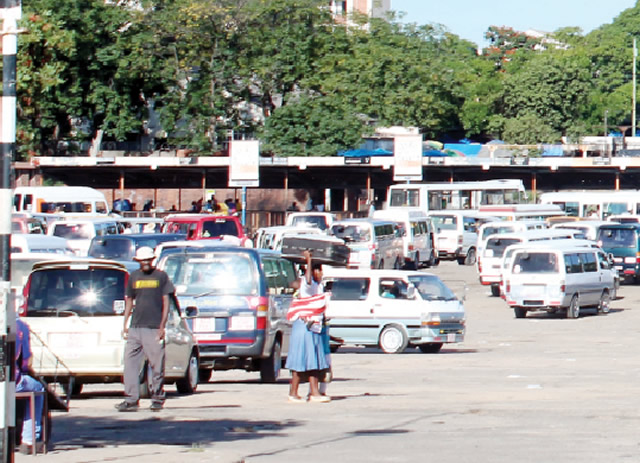The dead stay dumb, stupid

Joram Nyathi
I WAS trying to recall the title of one of English writer James Hadley Chase’s novels. I never got to read it so I am not sure what he was referring to in particular.
But I imagined its relevance to our current grinding economic circumstances and their invocation of a glorious past which a majority blacks never enjoyed.
In the past few years a combination of economic sanctions on Zimbabwe, inclement weather patterns and deliberate acts of man have reduced most of us to a state of desperation. The state of our polarised and partisan politics has coloured this national emergency differently.
For those who believe in the cause of the liberation struggle and wish for its full conclusion, the current state of emergency is part of the travails towards the birth of a new nation, a new Zimbabwe; a painful transition from Rhodesia to Zimbabwe, a struggle to right the wrongs of slavery and colonialism whose positive outcome must be a full realisation of the dignity of the black man in the comity of nations.
There can be no gold-paved thoroughfares to such a destination given the resistance and machinations of those who believe the black man, whether in Africa or Europe or America, is an inferior being who must serve the interests of the white man in perpetuity, rather than choose and decide his destiny.
African heroes like Steve Biko and Martin Luther Jr or Patrice Lumumba and Thomas Sankara took a stand on behalf of their fellowmen and are testimony that it’s never a safe road to travel.
A lost decade
For those for whom Rhodesia was a Little England and other Zimbabweans who believe racial equality means those who unduly benefited from colonial, racist privileges must retain those privileges in perpetuity while blacks work for them and look for tiny niches in which they can prosper, for those, the current state of national emergency is an illustration of all that is wrong with the land reform, with seeking to empower black people, with trying to humanise the black man.
It is a demonstration of how the liberation struggle was a waste of time, of how blacks are not fit to govern themselves and, most important, both a vindication of colonialism and its justification.
For these, independence should have ended with the fall of the Union Jack and hoisting of the new flag in 1980, and a black leader for a few years before we reverted to our white master.
There was no need for economic transformation which, faced with resistance, sabotage and overt sanctions, must of necessity yield the current emergency.
For many of those who believe we should have let the status quo ante be, the years of economic transformation from 2000 have been described as a “lost decade”. Indeed, there are many who lost.
Including losing all colonial racist privileges, and they are furious. Such will not acknowledge that those black farmers now making millions from tobacco farming view the same period differently, for they gained what was lost – the land.
Those from Rhodesia who have accepted the inevitable march of history have described the current emergency as a “new normal”.
Of course that’s an insult, implying, as it does, that colonial racial privileges were good for everyone and that the current emergency will last forever.
Zanu-PF’s sins
Let’s give it to them though when they point out the shortcomings in the struggle to give material substance to independence.
There has been egregious corruption in executing the land reform programme and other economic empowerment initiatives and in the running and management of state enterprises.
Some of this amounts to criminal if not sabotage. There are individuals who still own more than one farm against the governing party’s own self-imposed one man one farm policy.
There are individuals who have violated tender regulations or inflated costs.
This cancer has spread because there hasn’t been a determined effort on the part of the executive to cure it.
If there is one thing where Zanu-PF has utterly betrayed and undermined all its good intentions, it is in failing to punish those who refuse to play by the party’s declared rules, and that began with a failure to enforce the revolutionary party’s own Leadership Code in the 1980s.
From there on, as more and more revolutionary cadre tasted the sweetness of money, exhortation to austerity was resented until corruption became a culture. We are one country where crime pays handsomely with impunity.
It is this more than anything else which has damaged and discredited the revolution – the land reform and black economic empowerment policies – and delayed the inevitable growth of the new economy, and thus amplified the miasma of national gloom.
There is nothing fundamentally wrong with the policies in themselves which cannot be adjusted. But through clumsiness of execution, Zanu-PF has managed to drain the spirit even our neighbours and other African nations who wanted to emulate this splendid national initiative.
In allowing corruption to flourish, Zanu-PF has given ammunition to its opponents and enemies alike. Intention and the current state of affairs have been conflated.
It’s like there was never an intention to empower the poor, but rather, to open up opportunities for the rich or those with close connections to power.
On this one Zanu-PF has no one to blame but itself. It is an internal malady which it must cure to regain the trust of the people.
A malady its opponents and enemies will deploy with vigour ahead of the 2018 general election as the sole cause of the economic malaise. Evidence being the ZSE.
Last week the Zimbabwe Independent, and this week the Financial Gazette, in their editorials lamented the decimation of the Zimbabwe Stock Exchange as indicative of a further deterioration of “the economy”.
They had figures to back their dire forebodings.
They have the history, but not the context. Both subscribe to the description of the ZSE as “a barometer of the economy’s health”, a description obviously copied and pasted from the Wall Street Journal, both papers raising a red flag over an economic indicator with long lost significance in our context.
Whispering to the dead
Necromancy is defined as the “supposed practice of communicating with the dead, especially in order to predict the future”. Earlier I alluded to the current national emergency being described as “a new normal”.
That was Professor Tony Hawkins a year or so ago. Finance and Economic Development minister Patrick Chinamasa retorted that we were building “a new economy”. The new major earners of foreign currency are evidence of that.
One thing Zimbabweans have not accepted is the idea of a new economy. We are caught in a time warp.
We are all looking backward at the cemetery of a dead Rhodesian economy and hoping to read the future from it while we ignore a Zimbabwean economy already in the making.
Whose economy is the ZSE “a barometer” of? Whose depression? Whose losses are they counting anyway?
Is it being seriously suggested that the $7 billion circulating in the small-scale sector, the new economy, is of less importance than $1,5 billion lost on the ZSE?
Do these people realise that the small-scale tobacco farmers who by this week had earned more than $400 million are part of the despised “informal” new economy?
Question 1: Do we expect informal sector operators and small-scale tobacco farmers to gamble their hard-earned cash on the ZSE? To boost the profits of those selling shares and externalising the proceeds to punish Zanu-PF for the land reform?
Especially when local foreign-owned banks have rejected the land reform and will not support the same SMEs and farmers, the new economy and the opportunities it opens up for those who have faith?
Another country, another year
A quotation from Napoleon Hill’s all-time bestseller, Think and Grow Rich, might open our minds on how to confront our national emergency in a more encompassing, rather than a self-serving partisan fashion.
The book was published during the so-called Great Depression in 1937. In the midst of devastation and desolation facing America, Hill rejected the option to wallow in a nostalgia about a past no one could bring back to reality.
Here we go: “The six year economic collapse has reduced all men, substantially, to the same level,” he says.
“A new race is about to be run. The stakes represent huge fortunes which will be accumulated within the next 10 years.
The rules of the race have changed, because we now live in a CHANGED WORLD (his caps) that definitely favours the masses, those who had but little or no opportunity to win under the conditions existing during the depression, when fear paralysed growth and development.
“We who are in this race for riches should be encouraged to know that this changed world in which we live is demanding new ideas, new ways of doing things, new leaders, new inventions, new methods of teaching, new methods of marketing, new books, new literature, new features for the radio, new ideas for moving pictures … The business depression marked the death of one age, and the birth of another.”
Question 2: In 2016, can our ZSE gazers hear echoes of America in STEM or STEAM to meet the challenges and requirements of a CHANGED WORLD or new radio stations and the demand for new content or the new school curriculum and the need for new content, new thinking, new literature and new books?
The land reform, “the business depression”, marked the death of the old economy.











Comments